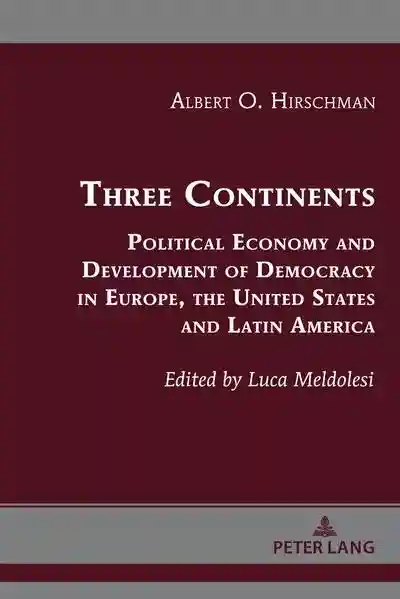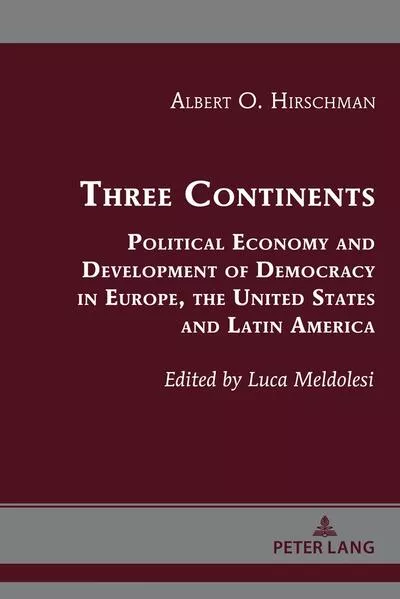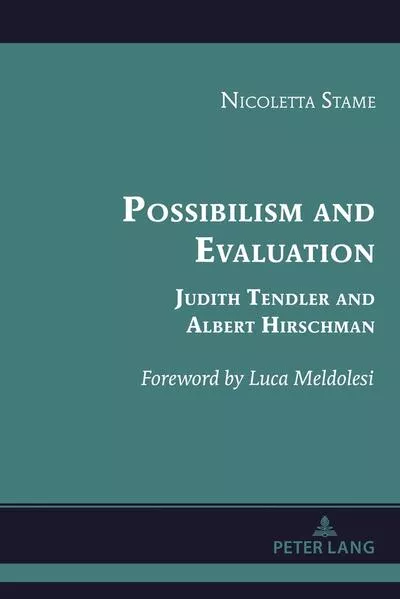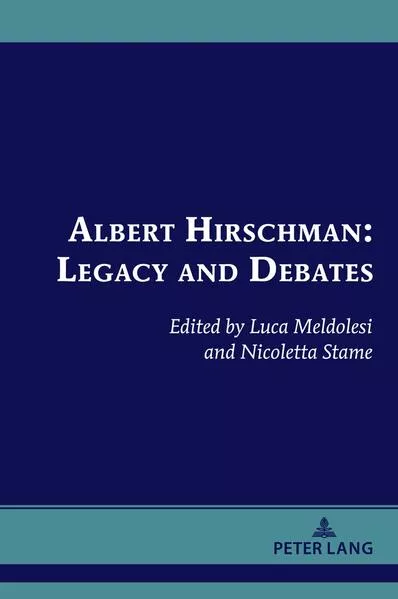Chronologie aller Bände (1 - 3)

Die Reihenfolge beginnt mit dem Buch "Three Continents". Wer alle Bücher der Reihe nach lesen möchte, sollte mit diesem Band von Luca Meldolesi beginnen. Mit insgesamt 3 Bänden wurde die Reihe über einen Zeitraum von ungefähr 2 Jahren fortgesetzt. Der neueste Band trägt den Titel "Albert Hirschman: Legacy and Debates".
- Anzahl der Bewertungen für die gesamte Reihe: 0
- Ø Bewertung der Reihe: 0
- Start der Reihe: 29.08.2022
- Neueste Folge: 24.10.2024
Diese Reihenfolge enthält 2 unterschiedliche Autoren.
- Band: 3
- Autor: Meldolesi, Luca
- Anzahl Bewertungen: 0
- Ø Bewertung:
- Medium: Buch
- Veröffentlicht: 29.08.2022
- Genre: Politik
Three Continents
With an astonishing unity of inspiration that serves as a counterbalance to the richness and variety of his themes and positions, Albert O. Hirschman, great political economist of our time, introduces us to the study of Western Europe, the United States and Latin America. From his own memories of the fascist period retold on the occasion of his honorary degree to two previously unpublished writings on the origins of European integration, from a group of illuminating essays on the contemporary economic and political realities of developed Western countries to a selection of texts on South America containing the provisional balance sheet of long experience, this is an intellectual lesson in the truest sense. Through his original way of penetrating the realities of our time, the author unveils a series of concrete issues and new and unlikely ways forward, constructing a tenacious and possibilist scientific pathway aimed at the unstinting encouragement of mutual understanding, economic and civic growth, and the democratic development of three continents.
- Band: 4
- Autor: Stame, Nicoletta
- Anzahl Bewertungen: 0
- Ø Bewertung:
- Medium: Buch
- Veröffentlicht: 24.10.2022
- Genre: Politik
Possibilism and Evaluation
Albert Hirschman affirmed that "Judith Tendler’s fine insights into the differential characteristics and side-effects of thermal and hydropower, and of generation and distribution, contributed in many ways to the formation of my views." Judith Tendler, in turn, wrote that Hirschman had taught her "to look where I never would have looked before for insight into a country’s development," and that in Albert’s work a researcher who was "patient enough" would find "a rich complexity of both success and failure, efficiency alongside incompetence, order cohabiting with disorder."
Reconstructing the theoretical roots of interpretive social science, this text shows how Hirschman’s possibilism lies at the base of the original way Tendler practiced evaluation and anticipated many current developments. The continuing vitality of their thought enables us to trace the outlines of possibilist evaluation.
Reconstructing the theoretical roots of interpretive social science, this text shows how Hirschman’s possibilism lies at the base of the original way Tendler practiced evaluation and anticipated many current developments. The continuing vitality of their thought enables us to trace the outlines of possibilist evaluation.
- Band: 7
- Autor: Meldolesi, Luca
- Anzahl Bewertungen: 0
- Ø Bewertung:
- Medium: Buch
- Veröffentlicht: 24.10.2024
- Genre: Politik
Albert Hirschman: Legacy and Debates
This book contains a selection of chapters coming from For a Better World (First Conference on Hirschman Legacy - Boston 2017), A Bias for Hope (Second Conference on Hirschman Legacy- Washington-WB 2018), and A Passion for the Possible (Third Conference on Hirschman Legacy - Berlin 2019). The three Conferences have been organized by A Colorni-Hirschman International Institute, Rome, Italy.
Animated by a large group of well-known scholars and operatives coming from United States, Europe, Latin America, Africa, Asia, Oceania and the Middle East, these Conferences provided a large spectrum of contributions on Albert Hirschman life and work, and on the wide range influence that this protagonist of the cultural scene of our time has had on managers and entrepreneurs and on public and private development around the world – from the local level, up to the UN-WB one.
Sifting through the material of these Conferences, and repositioning the chosen contributions according to a general line of reasoning, however tenuous, the present collection shows the flexibility and applicability of Hirschman’s methods, concepts and proposals to the most diverse situations; and vice versa – that is it shows how those variegated realities often lend themselves to be interpreted à la Hirschman.
Animated by a large group of well-known scholars and operatives coming from United States, Europe, Latin America, Africa, Asia, Oceania and the Middle East, these Conferences provided a large spectrum of contributions on Albert Hirschman life and work, and on the wide range influence that this protagonist of the cultural scene of our time has had on managers and entrepreneurs and on public and private development around the world – from the local level, up to the UN-WB one.
Sifting through the material of these Conferences, and repositioning the chosen contributions according to a general line of reasoning, however tenuous, the present collection shows the flexibility and applicability of Hirschman’s methods, concepts and proposals to the most diverse situations; and vice versa – that is it shows how those variegated realities often lend themselves to be interpreted à la Hirschman.


